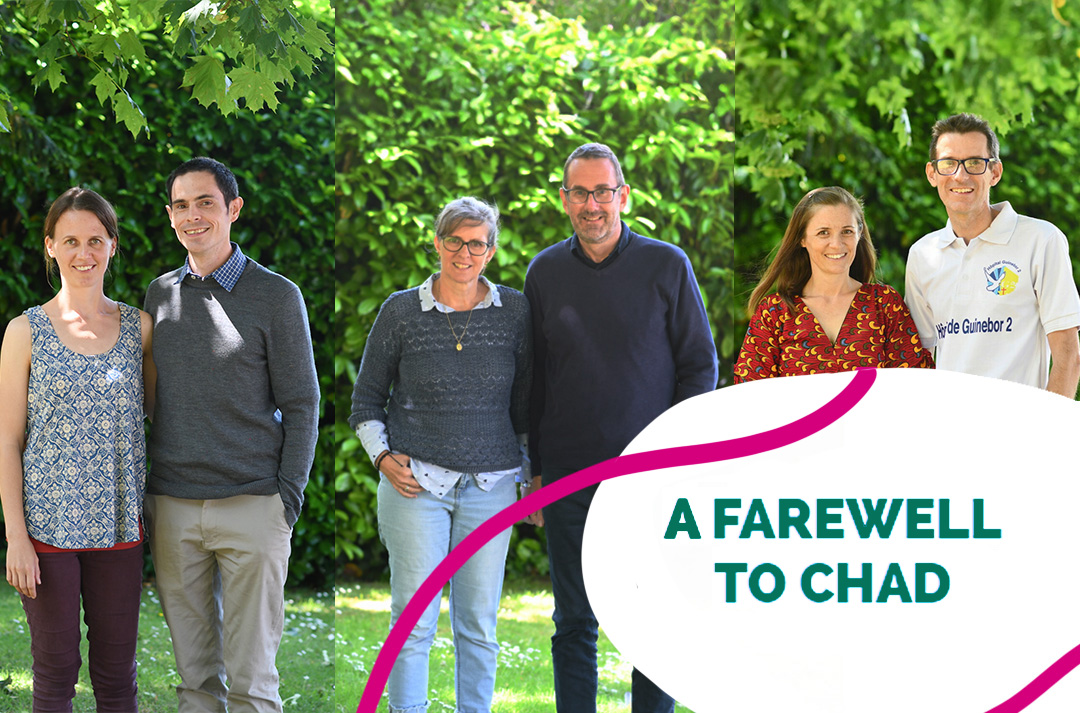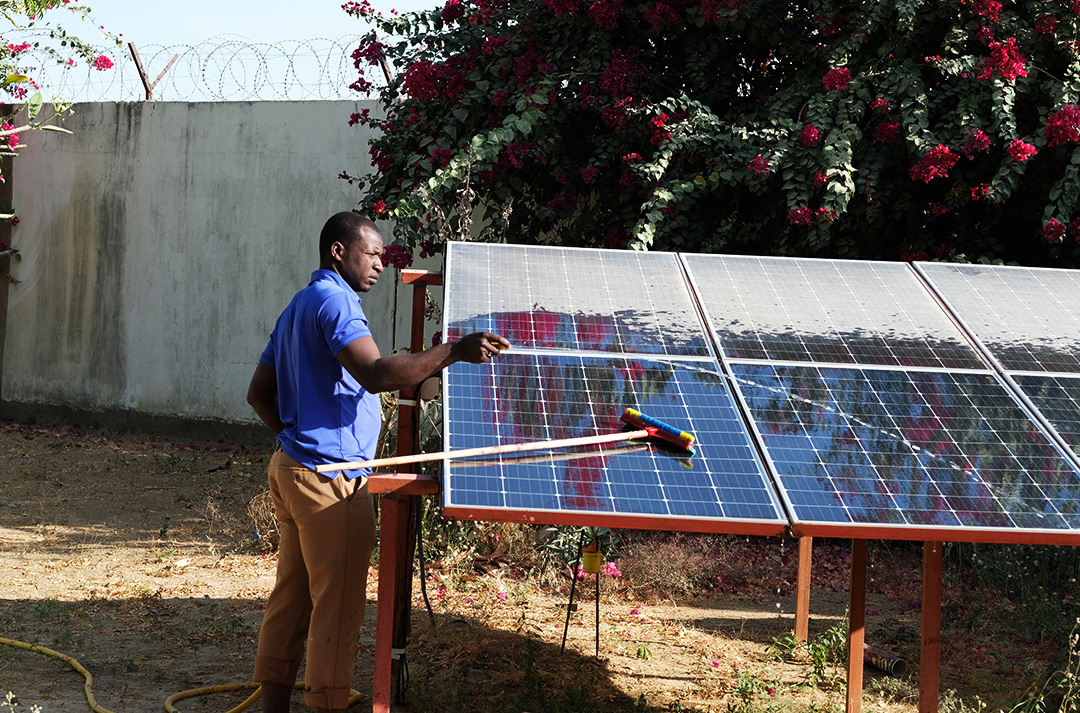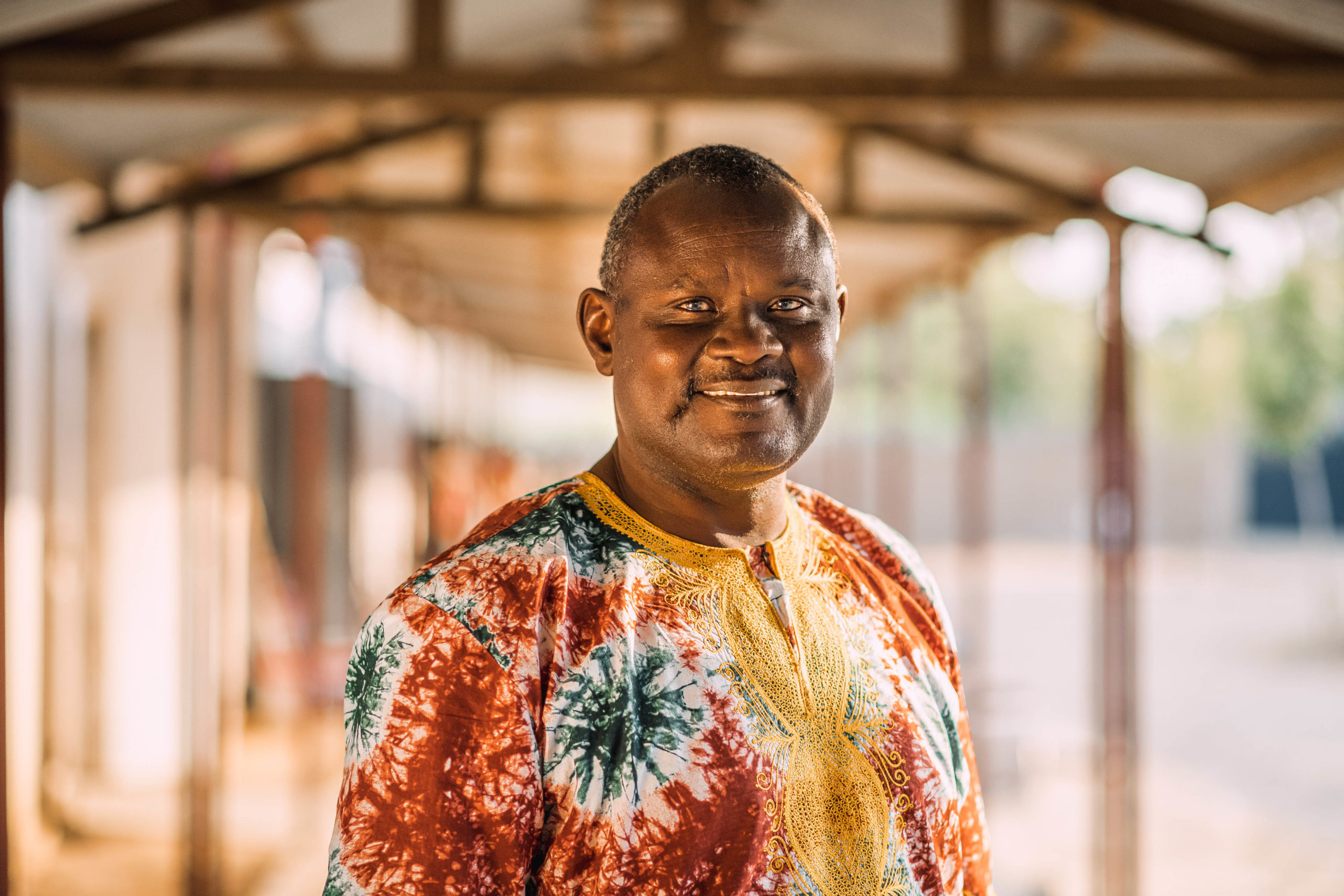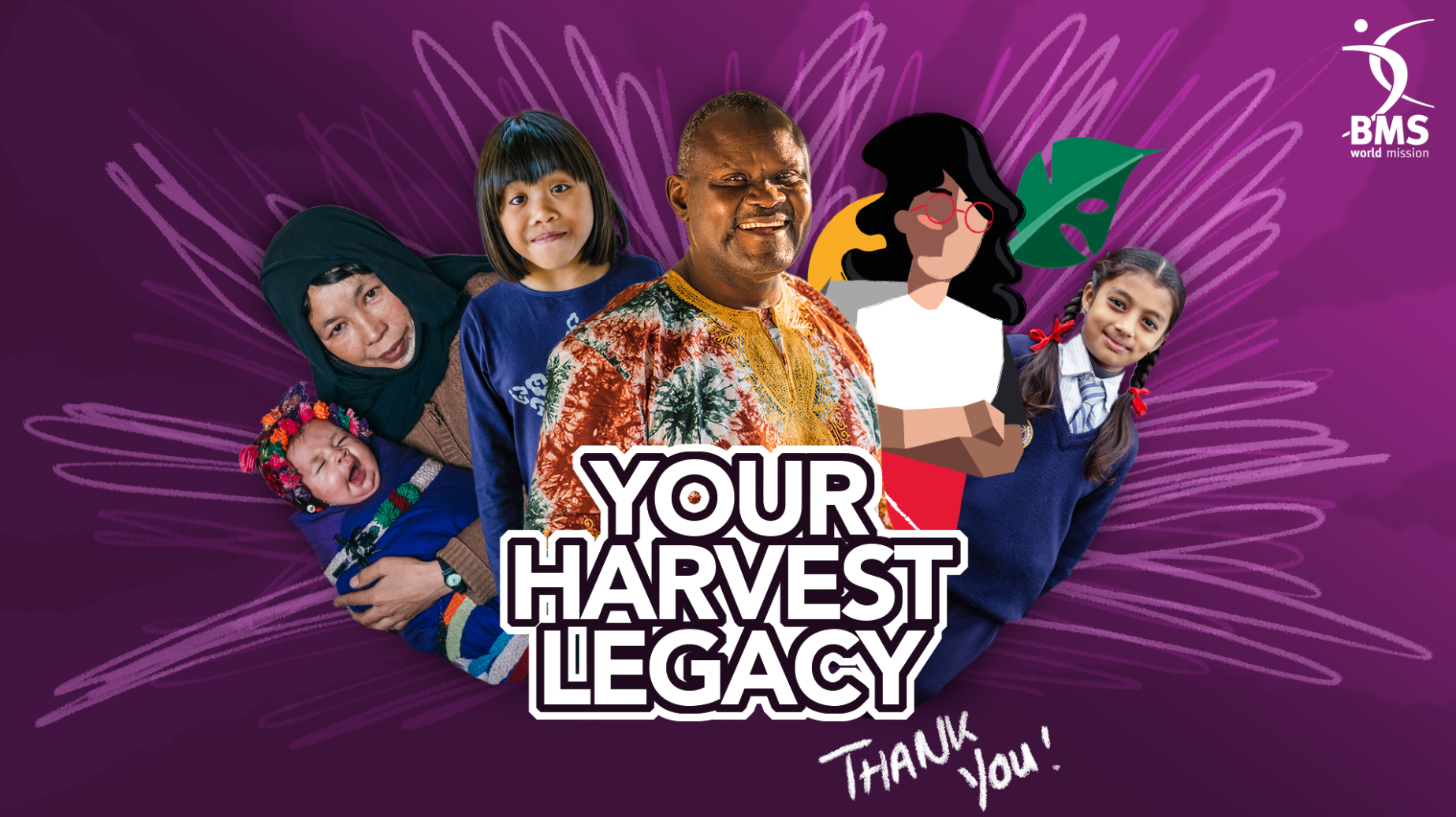Sahel surgeons:
The most dramatic day
Truckloads of injured fighters. Surgeons donating blood. Chicken pies for tea. All in a day’s work for BMS World Mission workers in the Sahel, Andrea and Mark.
Oh my goodness, these guys. The things they see. The help they give. They’re amazing. And inspiring. And deserving of your support. If you don’t know them, let us introduce you.
Andrea and Mark Hotchkin are BMS medical workers in Bardai, in the northern part of Chad, and they are some of our favourite people. They are experienced and highly skilled surgeons who are living in a two-room dwelling in one of the most remote locations BMS works. They sleep on the floor (in sleeping bags to keep out the scorpions). They have an outdoor loo and washing area. And they are, as you will see a little bit later, magnificently understated about the work they do and the situations they face.
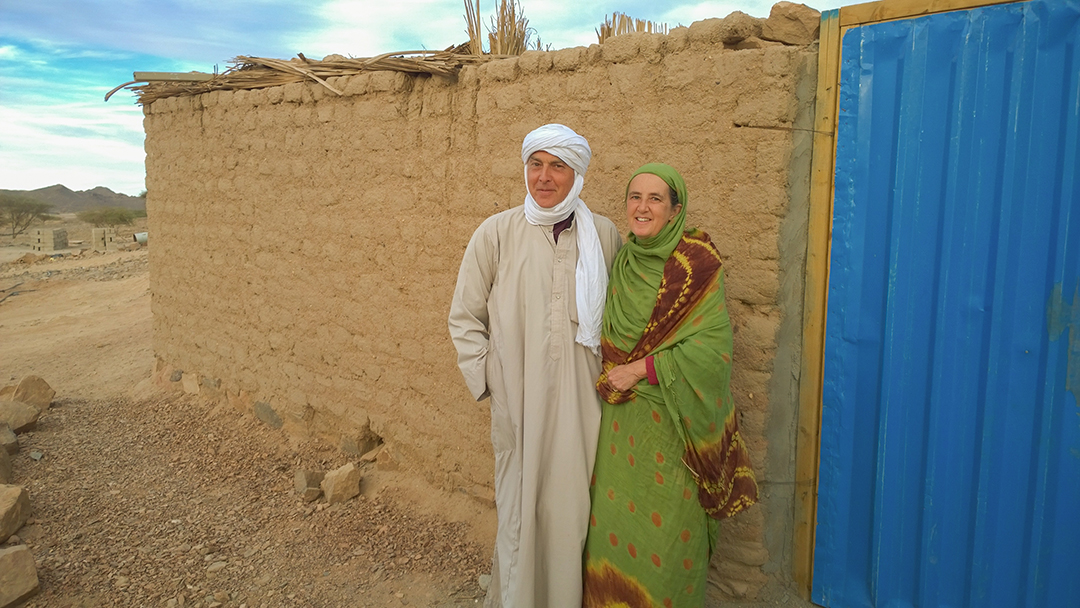
Take their latest prayer letter. Andrea and Mark work in a Government hospital, alongside dedicated Chadian staff, building capacity and raising community trust in what is an important medical centre in this part of the Sahel region of North Africa. Lately, they have been dealing with some of the fallout from the conflict in the Sahel that you may have read about. It’s pretty intense and dramatic, but Andrea and Mark open their latest prayer letter with characteristic calm:
Since the start of the year we have been using a morning prayer from the Corrymeela Community:
May we make room for the unexpected, may we find wisdom and life in the unexpected. We recall our day yesterday: May we learn, may we love, may we live on. Help us to respond graciously to disappointment.
It helps us reflect on our lives, the joys and the difficulties of each day, and the fact that it is often through relationships with others that we can truly live and encounter God. So on Friday the 21 February we prayed that we may make room for the unexpected, whilst at the same time hoping for a normal day’s work before expecting a quiet weekend as we have been exceptionally busy over the past 2 months and just needed a bit of rest.
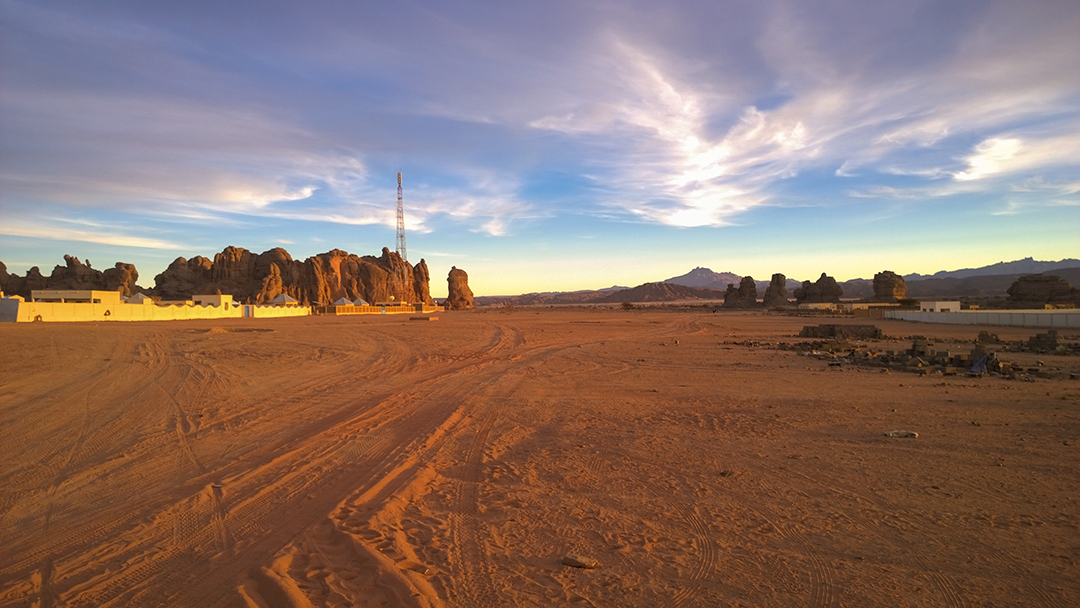
So far, so just-the-same-as-most-of-our-Fridays, right? Wrong.
At one o’clock, three military pickups arrived without warning from the local airstrip. They had 11 badly injured fighters who had been evacuated by helicopter from a gold field 300 km (a day’s drive) to the North on the Libyan frontier. The battle had been a couple of days before, we had heard some news, but as such things are quite frequent and often we get two or three self-referred casualties at a time, we hadn’t thought much about it. Thankfully, a couple of weeks before, we had opened a new seven-bed ward (that had been used before as a storeroom), so the two patients in there were moved next door and the room filled. Four extra beds were added when it became clear that they were needed. It sounds efficient, it wasn’t; but amazingly it was possible.
Casual. Three trucks full of wounded fighters show up without warning. You beat yourself up about the efficiency of your bed-moving. These guys are incredible. And helping people who are in real trouble. Like this:
There was one teenager in shock with a bullet wound to his abdomen and another with a bullet wound puncturing the lung and paralysed from the waist down. The rest had a mixture of open fractures of legs and arms caused by bullets and closed fractures of leg, chest and pelvis from being hit by armoured vehicles. All had received no treatment or dressings since they were injured three days before. Where to begin? The entire hospital staff sprang into action, all six of us: two Chadian doctors, two Chadian nurses and us.
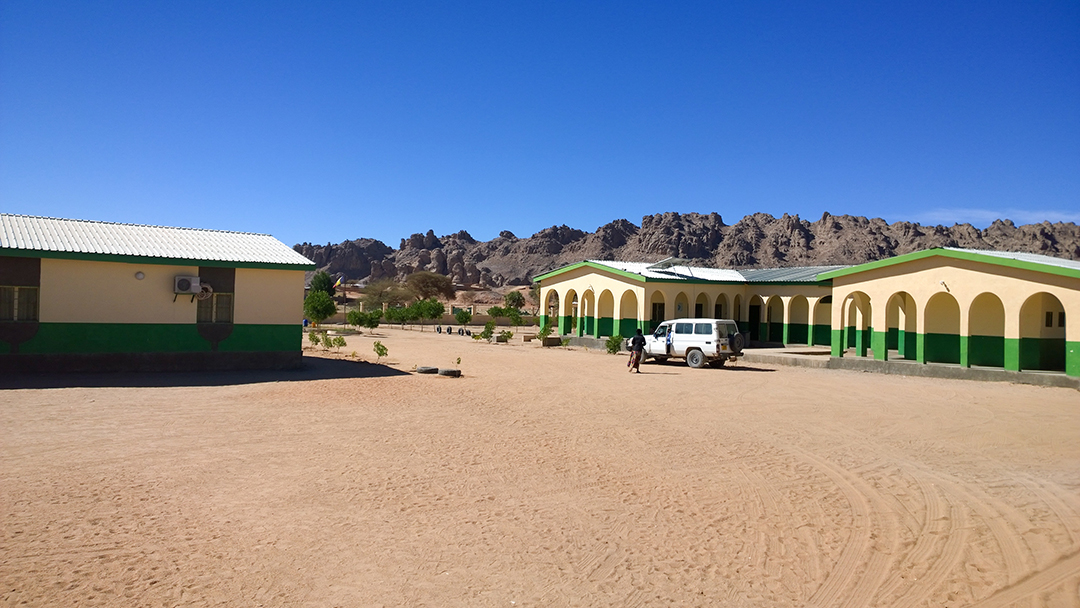
Wait, what? Six people? Yes. Because BMS sends people where they are needed most, rather than where it’s easiest, and we send them to work alongside the people already making a difference. Chad has fewer than 500 doctors to serve a population of 11 million people, and places near the Libyan border really need medical capacity. The Chadians working there are real heroes, and Andrea and Mark are proud to work with them. And work they do…
We needed fluids for resuscitation, antibiotics, anti-tetanus serum, pain killers and dressings in large amounts. The hospital administrator who is currently running the pharmacy had never seen anything like it. Fortunately, we have boxes for major surgical emergencies from the Ministry of Health: drugs, dressings, stitches and swabs all in a big box. Soon everyone was pulling together and an unexpected four nurses came from the small military clinic to help to assess and treat the patients. An emergency chest drain was put in, saline drips started and everyone was assessed, wounds dressed and notes made. The first patient with an open fracture was operated on, the second with maggots in his wound had drunk a litre of juice supplied by the local community (along with blankets and food the next day) and the patient with an abdominal injury was vomiting as he too hadn’t been able to resist a drink. At that moment, four hours after the first casualties, a second convoy arrived with twelve more patients, about half walking wounded and the rest with bad fractures.

That’s right. More. But did the amazing mix of British and Chadian staff panic? No. Or maybe yes. We don’t know. What we do know is that they just got on with it and did what was necessary.
A second ward was cleared and, as first treatments were being given, we took the man with the abdominal wound and peritonitis to theatre as he now had a palpable pulse and measurable blood pressure. We have no blood bank but a unit of much needed blood had been given by a mission colleague and very fortunately, a couple of days before, an electrician had fixed the ceiling lights so that we now had six, rather than two bulbs, which, along with our head torches, made up for the fact that the operating lamps are broken. The operation went well, two perforations of the small bowel were removed, and as he was still shocked at the end of the operation, despite Andrea’s best efforts, at midnight I gave him a unit of my blood. And once we had finished cleaning up the operating theatre for the next day’s work and checked on the newly arrived patients, we were ready to walk home.
So, to be clear: operating using head torches and donating your own blood to patients you’ve operated on. No fanfare, no fuss. Just doing what you do. Andrea and Mark and the amazing local people who they work with are an inspiration to us. We hope they are an inspiration to you, too. People who have sacrificed an easier life at home to help people where the need is great, working and living alongside the hard-pressed local heroes who are able to do more because people like you support BMS.
Andrea and Mark wouldn’t be able to be there without your prayers and without your giving. So please pray now for Chad, for peace in the Sahel and for Andrea and Mark, as well as all the staff at this heroic hospital.
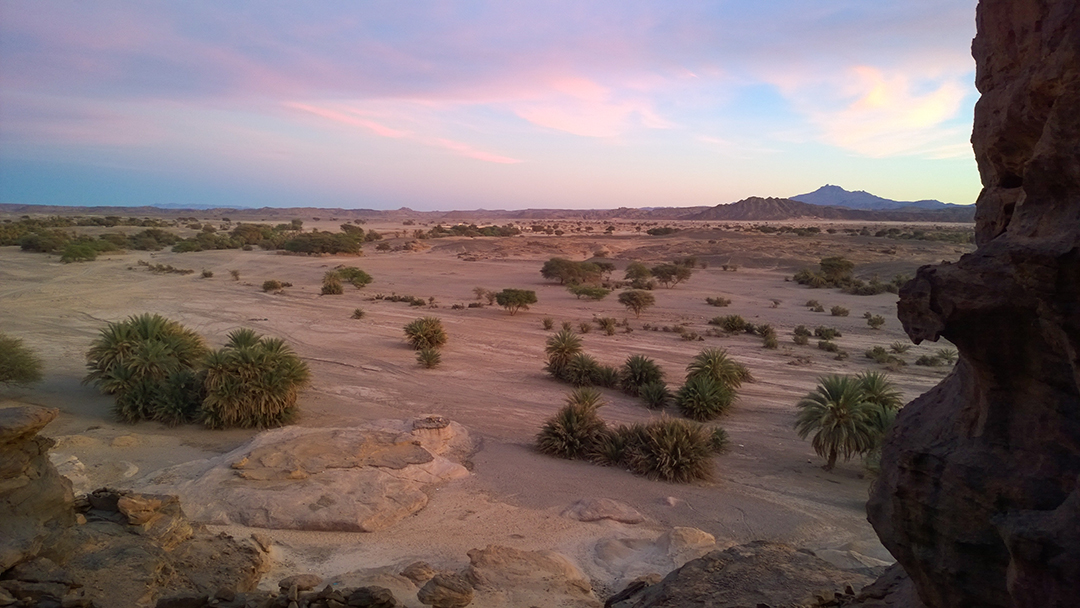
And here’s our favourite part of this letter form the Hotchkins. The understated cherry on the top of their day of drama:
The final unexpected event of that eventful day was a chicken pie that our mission colleague had dropped off at the hospital for our tea. It was 2 am and we fell asleep with the alarm set for 7 o’clock.
You can support Andrea and Mark by giving regularly or you can make a one-off donation to support this and other life-transforming work around the world. Whatever you do, we are grateful. Thank you for your prayers.
They are the very opposite of ex-pats living the high life, separated from the real lives of the local people they serve. And they experience some of the most intense and challenging situations you can imagine.


